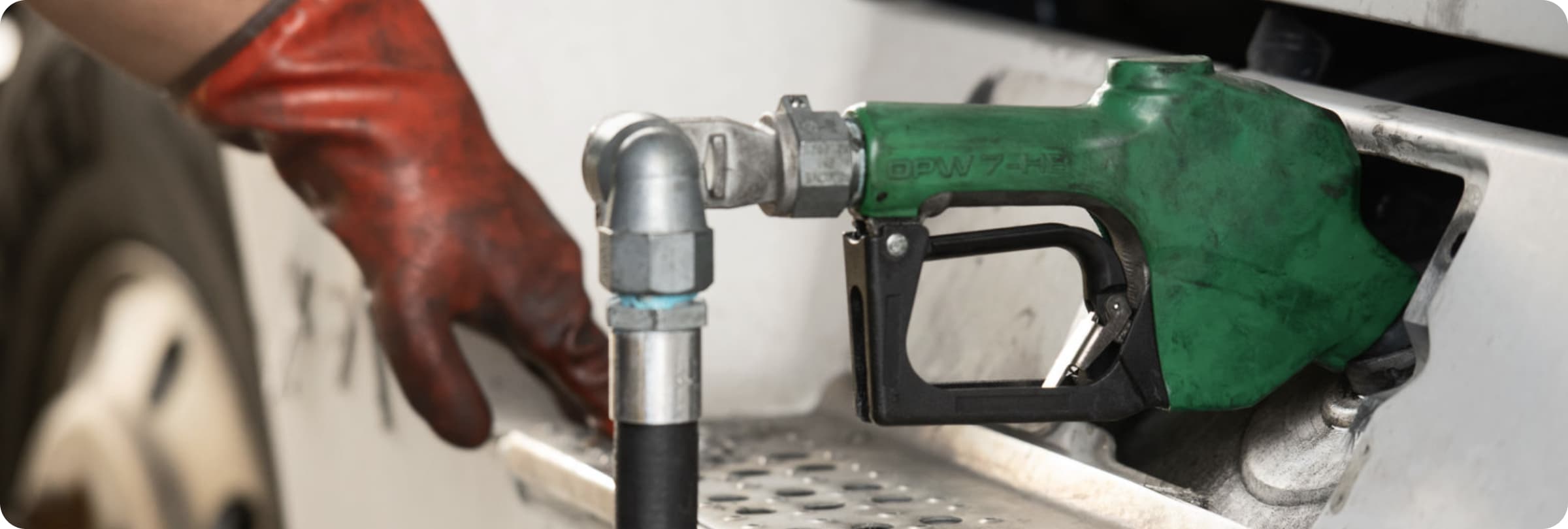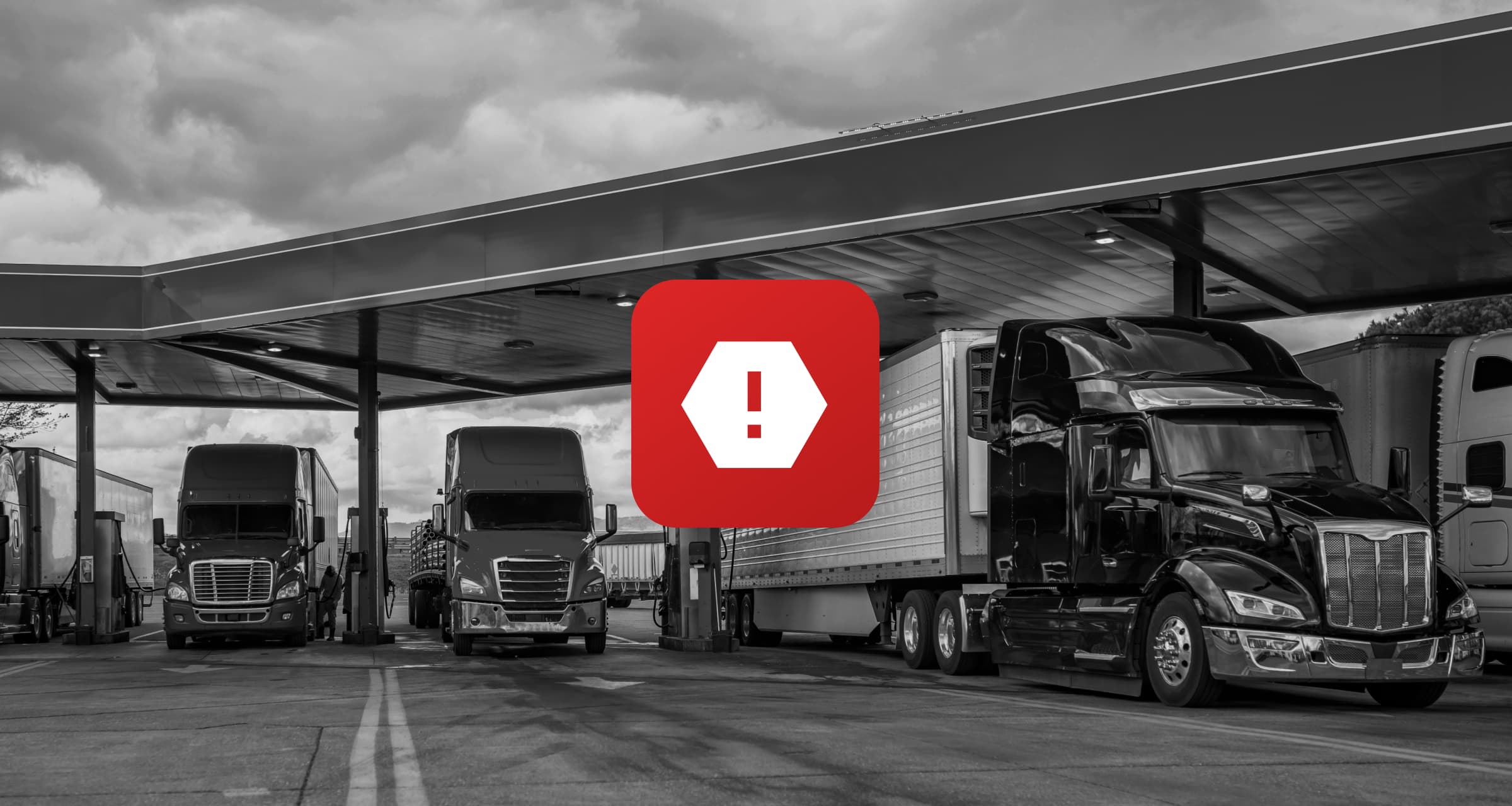Fuel accounts for roughly a quarter the cost of every mile covered by the trucking industry in the United States. So the fact that fuel fraud is on the rise poses a serious threat to individual drivers and owner-operators, as well as larger trucking companies. In fact, the Association of Certified Fraud Examiners found that businesses with fewer than 100 employees lost nearly twice as much ($200,000) per fraud incident as companies with 100 or more employees ($104,000).
Reliance on fleet fuel cards that can be easily compromised is central to the problem of fuel fraud. According to Federal Trade Commission data, card fraud is the most common type of identity theft in the US. Card skimming is a well known threat, estimated by the FBI to cost financial institutions and consumers more than $1 billion each year. However, it’s not the only kind of fuel card fraud to be aware of.
Moving away from traditional physical cards to digital payments is a step in the right direction. But until digital fuel payments become the standard, it’s important for drivers and trucking companies to be aware of the types of fuel fraud being used, and learn how to avoid them.
Third-party fuel fraud
Truck drivers make ideal targets for fuel card fraud because their behavior and routes are more or less predictable, and they make frequent stops across broad distances to make large fuel purchases. As the main line of defense against third-party fuel fraud, drivers can help minimize risk by knowing and recognizing the main types of fuel fraud in the trucking industry.
Fuel Card Cloning
Fraudsters obtain details of a driver’s fuel card and make a copy they then use to fill up vehicles or make fuel station purchases, with all charges going on the driver’s account. The criminals can get the card data any number of ways, from online hacks to pulling card details from the mail or trash. Beyond being costly, this type of fuel fraud can be particularly difficult to catch and stop before the charges stack up simply because the driver has no way of knowing it’s happening until it’s too late.
Card Skimming
The use of card skimmers has facilitated fuel card fraud for decades. Recent reports show card skimming fraud increased more than 700% in 2022, with estimates of the cost of fraud for trucking companies totalling millions of dollars every month. Schemes targeting truckers typically install card skimmers on fuel pumps at truck stops, where they capture card data each time a driver swipes a fuel card. The fraudsters can then use the data online or make a clone, and rack up charges without the driver knowing.
Free Fuel Scams
With the increasing cost of fuel and effects of inflation, “free fuel” scams are on the rise. Fraudsters will imitate legitimate fuel card companies or truck stops and target truck drivers with fake ads, social media posts, emails, calls or even texts advertising a deal on fuel. To avail of the discount, the driver is asked to share banking or card information, which the scammers then use to commit fuel fraud.
Cyber Attacks
Criminals looking to commit fuel fraud can use typical phishing scams or hacks to target the information, networks and financial data of large fleets, owner-operators or individual drivers. Depending on the information obtained, the fraudsters can make direct purchases, clone cards, set up fuel accounts or even directly transfer funds. These scams are often difficult to identify or track, and can quickly amount to significant losses.
First-party fuel fraud
Unfortunately fuel fraud is not limited to unknown bad actors. Sometimes truck drivers or those imitating them are in on the fraud, whether in collaboration with others or on their own. While third-party fraud can be difficult to detect because the theft goes unnoticed, first-party fuel fraud can be even trickier since the individual best positioned to highlight a problem is also the one covering it up. However, carriers are doing a better job watching for these types of fuel fraud. Digital fuel payments are also introducing configurable policies and geofencing technology to help fleets better manage first-party fraud.
Inflated Mileage
Drivers purchase additional gallons of fuel for personal use and inflate their recorded mileage to make the expense look legitimate. Fleet managers can curb this by checking routes, odometers and verifying distances covered to complete shipments.
Fuel Type Fraud
If a driver uses a fleet fuel card to purchase the wrong kind of fuel, it’s likely that incorrect fuel was purchased for personal use.
Siphoning
A fraudster uses an automatic pump, hose or siphoning device to remove fuel from the truck and place it in another vehicle or container.
Side Fuelling
A well known and widely used form of fuel fraud, side fuelling occurs when the truck and a second container are filled at the same time and charged as one transaction. The second container could be a mobile generator, jerry can or even a fuel bladder hidden inside or underneath the vehicle.
Multiple Pump Transactions
Fraudsters can sometimes work with collaborators to commit fraud, as with a multiple-pump transaction. A cashier merges the charges of multiple pumps into one transaction charged to the fuel card. Then the payment taken for the additional pumps is shared as cash between the cashier, driver and pump attendant.
Inflated Transactions
Also working with a cashier, a driver could ask for a specific amount of fuel, then pay for more with their fuel card. The difference is split between the cashier, driver and anyone else involved in the fraud.
Card Fraud
Fuel fraud also happens if a fuel card is used by someone other than the authorized driver to make purchases or is used to purchase unauthorized or personal items.
Store Purchases
Drivers may also add unauthorized purchases like food, car washes or other non-fuel items to the total transaction charged to the card.

Stay vigilant to deter fuel fraud
Luckily there are steps everyone can take to minimize their chances of falling victim to fuel fraud. Owner-operators should learn the signs of potential fraud, how to avoid scams and what to do if they suspect illegal activity. Larger trucking companies can provide driver training for avoiding fraud and make their own policies on fuel fraud clear and available. Modernizing your fuel payments, being alert and staying vigilant are the best ways to avoid fuel fraud and protect yourself on the road.














